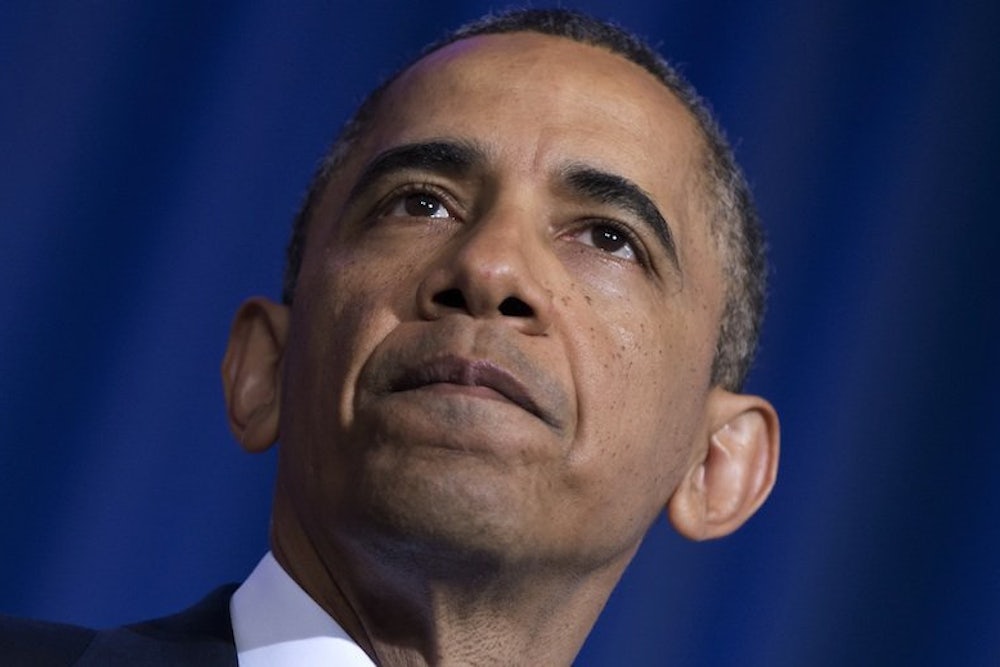President Barack Obama included many powerful phrases in his speech Thursday at the National Defense University. One of his most powerful was the invocation of President James Madison's warning that "No nation could preserve its freedom in the midst of continual warfare."
If Obama had given his speech at any time before Senator Rand Paul’s filibuster, he might have accomplished his purpose. The president might have persuaded many around the world that the worst excesses of the so-called “war on terror” were finally over. He might have convinced allies, UN human rights investigators, national and international courts and the American people that closing Guantanamo, ending military commissions, and limiting drone attacks should earn him retroactively the Nobel Peace Prize.
The president is not ending the “boundless war on terror,” however. He will continue to support killing with drones and may have even imbedded it more deeply in U.S. policy than President Bush ever did by developing some sort of code to govern its use.
It is, however, too late for the public to be persuaded by Obama’s measured, sincere, tolerant tones and powerful invocations. The heckler who interrupted the president was handled skillfully—but the public is so much better informed today. Even Obama implicitly conceded that killing with drones beyond armed conflict zones is a use of military force without legal justification.
Instead of citing the law, the president referred to costs, difficulties, preferences, last resort and new “rules” to constrain future presidents. He invoked plenty of rationales except the ones that count among the other 192 sovereign states in the world. The drone attacks the president was attempting to justify involve launching multiple Hellfire missiles or the dropping of 500-pound bombs. Such military force is only lawful in one of three situations:
1.) Self defense: The United States may deploy military force on the territory of a state responsible for an armed attack on the United States. Since Pearl Harbor the U.S. has only been attacked once, and it counter-attacked Afghanistan for that state’s role in the September 11 attacks. The use of force in self-defense against Afghanistan lasted until Hamid Karzai became president.
2.) Invitation to assist in civil war on the side of the government: After Karzai became president, he invited the United States and almost 50 other states to join in assisting his forces in ending the civil war raging in the country. That counter-insurgency war began in mid-2002 for the United States and will end in 2014 when the U.S. withdraws.
3.) Security Council authorization: The United Nations Security Council may authorize states to use military force. It was under this justification that the United States used military force in Libya in 2011.
Those are the justifications. Only Afghanistan bears any responsibility for the September 11 attacks. To the extent anyone with actual authority in Pakistan or Yemen has consented to the United States carrying out drone attacks, the consent has not been an invitation to fight in a civil war. The Security Council has never authorized U.S. drone strikes.
The president is willing to end other unlawful post-September 11 practices. Why not drone attacks?
He referred to Guantanamo as a symbol of American flouting the rule of law. However, Gitmo has faded as the principal symbol of America flouting the rule of law. Today, it is drone attacks outside Afghanistan, attacks that have killed almost 4,000 people, including 200 to 300 children.
The president attempted to defend drone use for several reasons other than legality. He said there are places where it is difficult, expensive, or dangerous to send special operations forces. Yet people everywhere know—as a matter of common sense and decency—that you cannot use military force because the police forces of a state are weak or because it is expensive or dangerous to send your own police or military to act under police rules. The reasons for this are already codified in international law.
Moreover, it was confusing as to what places the president was even discussing as eligible for continuing drone strikes. He referred to Yemen and Somalia as being where drone strikes would be conducted because of lawlessness but then said the U.S. would be returning Yemenis from Guantanamo Bay to Yemen. He also took credit for diminishing Al Shabab in Somalia and supporting the new government there. So apparently these two states are not so lawless after all.
The president is to be praised for supporting investment in building the rule of law peacefully in Yemen, Somalia, Pakistan and other places. He is to be credited with taking up again his incomplete project of closing Guantanamo.
If he is sincere about ending the twelve-year-old “boundless global war on terror,” however, he needs to stop the killing by drones. That is the essence of war.
